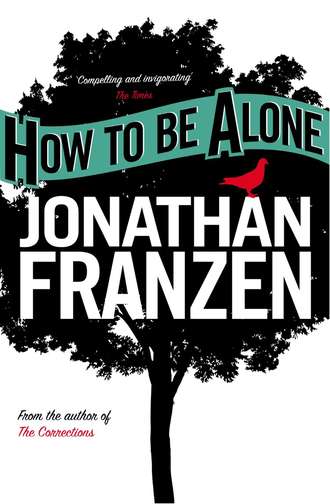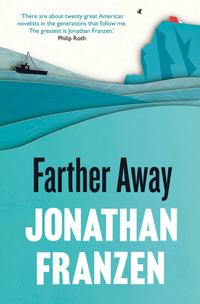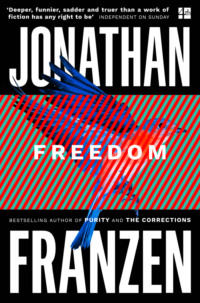
Полная версия
How to be Alone
In a similar way, the problem of online security is mainly about nuts and bolts. What American activists call “electronic privacy” their European counterparts call “data protection.” Our term is exciting; theirs is accurate. If someone is out to steal your Amex number and expiration date, or if an evil ex-boyfriend is looking for your new address, you need the kind of hard-core secrecy that encryption seeks to guarantee. If you’re talking to a friend on the phone, however, you need only a feeling of privacy.
The social drama of data protection goes something like this: a hacker or an insurance company or a telemarketer gains access to a sensitive database, public-interest watchdogs bark loudly, and new firewalls go up. Just as most people are moderately afraid of germs but leave virology to the Centers for Disease Control, most Americans take a reasonable interest in privacy issues but leave the serious custodial work to experts. Our problem now is that the custodians have started speaking a language of panic and treating privacy not as one of many competing values but as the one value that trumps all others.
The novelist Richard Powers recently declared in a Times op-ed piece that privacy is a “vanishing illusion” and that the struggle over the encryption of digital communications is therefore as “great with consequence” as the Cold War. Powers defines “the private” as “that part of life that goes unregistered,” and he sees in the digital footprints we leave whenever we charge things the approach of “that moment when each person’s every living day will become a Bloomsday, recorded in complete detail and reproducible with a few deft keystrokes.” It is scary, of course, to think that the mystery of our identities might be reducible to finite data sequences. That Powers can seriously compare credit-card fraud and intercepted cell-phone calls to thermonuclear incineration, however, speaks mainly to the infectiousness of privacy panic. Where, after all, is it “registered” what Powers or anybody else is thinking, seeing, saying, wishing, planning, dreaming, and feeling ashamed of? A digital Ulysses consisting of nothing but a list of its hero’s purchases and other recordable transactions might run, at most, to four pages: was there really nothing more to Bloom’s day?
When Americans do genuinely sacrifice privacy, moreover, they do so for tangible gains in health or safety or efficiency. Most legalized infringements—HIV notification, airport X-rays, Megan’s Law, Breathalyzer roadblocks, the drug-testing of student athletes, laws protecting fetuses, laws protecting the vegetative, remote monitoring of automobile emissions, county-jail strip searches, even Ken Starr’s exposure of presidential corruption—are essentially public health measures. I resent the security cameras in Washington Square, but I appreciate the ones on a subway platform. The risk that someone is abusing my E-ZPass toll records seems to me comfortably low in comparison with my gain in convenience. Ditto the risk that some gossip rag will make me a victim of the First Amendment; with two hundred and seventy million people in the country, any individual’s chances of being nationally exposed are next to nil.
The legal scholar Lawrence Lessig has characterized Americans as “bovine” for making calculations like this and for thereby acquiescing in what he calls the “Sovietization” of personal life. The curious thing about privacy, though, is that simply by expecting it we can usually achieve it. One of my neighbors in the apartment building across the street spends a lot of time at her mirror examining her pores, and I can see her doing it, just as she can undoubtedly see me sometimes. But our respective privacies remain intact as long as neither of us feels seen. When I send a postcard through the U.S. mail, I’m aware in the abstract that mail handlers may be reading it, may be reading it aloud, may even be laughing at it, but I’m safe from all harm unless, by sheer bad luck, the one handler in the country whom I actually know sees the postcard and slaps his forehead and says, “Oh, jeez, I know this guy.”
OUR PRIVACY panic isn’t merely exaggerated. It’s founded on a fallacy. Ellen Alderman and Caroline Kennedy, in The Right to Privacy, sum up the conventional wisdom of privacy advocates like this: “There is less privacy than there used to be.” The claim has been made or implied so often, in so many books and editorials and talk-show dens, that Americans, no matter how passive they are in their behavior, now dutifully tell pollsters that they’re very much worried about privacy. From almost any historical perspective, however, the claim seems bizarre.
In 1890, an American typically lived in a small town under conditions of near-panoptical surveillance. Not only did his every purchase “register,” but it registered in the eyes and the memory of shopkeepers who knew him, his parents, his wife, and his children. He couldn’t so much as walk to the post office without having his movements tracked and analyzed by neighbors. Probably he grew up sleeping in the same bed with his siblings and possibly with his parents, too. Unless he was well off, his transportation—a train, a horse, his own two feet—either was communal or exposed him to the public eye.
In the suburbs and exurbs where the typical American lives today, tiny nuclear families inhabit enormous houses, in which each person has his or her own bedroom and, sometimes, bathroom. Compared even with suburbs in the sixties and seventies, when I was growing up, the contemporary condominium development or gated community offers a striking degree of anonymity. It’s no longer the rule that you know your neighbors. Communities increasingly tend to be virtual, the participants either faceless or firmly in control of the face they present. Transportation is largely private: the latest SUVs are the size of living rooms and come with onboard telephones, CD players, and TV screens; behind the tinted windows of one of these high-riding I-see-you-but-you-can’t-see-me mobile PrivacyGuard® units, a person can be wearing pajamas or a licorice bikini, for all anybody knows or cares. Maybe the government intrudes on the family a little more than it did a hundred years ago (social workers look in on the old and the poor, health officials require inoculations, the police inquire about spousal battery), but these intrusions don’t begin to make up for the small-town snooping they’ve replaced.
The “right to be left alone”? Far from disappearing, it’s exploding. It’s the essence of modern American architecture, landscape, transportation, communication, and mainstream political philosophy. The real reason that Americans are apathetic about privacy is so big as to be almost invisible: we’re flat-out drowning in privacy.
What’s threatened, then, isn’t the private sphere. It’s the public sphere. Much has been made of the discouraging effect that the Starr investigation may have on future aspirants to public office (only zealots and zeros need apply), but that’s just half of it. The public world of Washington, because it’s public, belongs to everyone. We’re all invited to participate with our votes, our patriotism, our campaigning, and our opinions. The collective weight of a population makes possible our faith in the public world as something larger and more enduring and more dignified than any messy individual can be in private. But, just as one sniper in a church tower can keep the streets of an entire town empty, one real grossout scandal can undermine that faith.
If privacy depends upon an expectation of invisibility, the expectation of visibility is what defines a public space. My “sense of privacy” functions to keep the public out of the private and to keep the private out of the public. A kind of mental Border collie yelps in distress when I feel that the line between the two has been breached. This is why the violation of a public space is so similar, as an experience, to the violation of privacy. I walk past a man taking a leak on a sidewalk in broad daylight (delivery-truck drivers can be especially self-righteous in their “Ya gotta go, ya gotta go” philosophy of bladder management), and although the man with the yawning fly is ostensibly the one whose privacy is compromised by the leak, I’m the one who feels the impingement. Flashers and sexual harassers and fellators on the pier and self-explainers on the crosstown bus all similarly assault our sense of the “public” by exposing themselves.
Since really serious exposure in public today is assumed to be synonymous with being seen on television, it would seem to follow that televised space is the premier public space. Many things that people say to me on television, however, would never be tolerated in a genuine public space—in a jury box, for example, or even on a city sidewalk. TV is an enormous, ramified extension of the billion living rooms and bedrooms in which it’s consumed. You rarely hear a person on the subway talking loudly about, say, incontinence, but on television it’s been happening for years. TV is devoid of shame, and without shame there can be no distinction between public and private. Last winter, an anchorwoman looked me in the eye and, in the tone of a close female relative, referred to a litter of babies in Iowa as “America’s seven little darlin’s.” It was strange enough, twenty-five years ago, to get Dan Rather’s reports on Watergate between spots for Geritol and Bayer aspirin, as if Nixon’s impending resignation were somehow located in my medicine chest. Now, shelved between ads for Promise margarine and Celebrity Cruises, the news itself is a soiled cocktail dress—TV the bedroom floor and nothing but.
Reticence, meanwhile, has become an obsolete virtue. People now readily name their diseases, rents, antidepressants. Sexual histories get spilled on first dates, Birkenstocks and cutoffs infiltrate the office on casual Fridays, telecommuting puts the boardroom in the bedroom, “softer” modern office design puts the bedroom in the boardroom, salespeople unilaterally address customers by their first name, waiters won’t bring me food until I’ve established a personal relationship with them, voice-mail machinery stresses the “I” in “I’m sorry, but I don’t understand what you dialed,” and cyberenthusiasts, in a particularly grotesque misnomer, designate as “public forums” pieces of etched silicon with which a forum’s unshaved “participant” may communicate while sitting crosslegged in tangled sheets. The networked world as a threat to privacy? It’s the ugly spectacle of a privacy triumphant.
A genuine public space is a place where every citizen is welcome to be present and where the purely private is excluded or restricted. One reason that attendance at art museums has soared in recent years is that museums still feel public in this way. After those tangled sheets, how delicious the enforced decorum and the hush, the absence of in-your-face consumerism. How sweet the promenading, the seeing and being seen. Everybody needs a promenade sometimes—a place to go when you want to announce to the world (not the little world of friends and family but the big world, the real world) that you have a new suit, or that you’re in love, or that you suddenly realize you stand a full inch taller when you don’t hunch your shoulders.
Unfortunately, the fully public place is a nearly extinct category. We still have courtrooms and the jury pool, commuter trains and bus stations, here and there a small-town Main Street that really is a main street rather than a strip mall, certain coffee bars, and certain city sidewalks. Otherwise, for American adults, the only halfway public space is the world of work. Here, especially in the upper echelons of business, codes of dress and behavior are routinely enforced, personal disclosures are penalized, and formality is still the rule. But these rituals extend only to the employees of the firm, and even they, when they become old, disabled, obsolete, or outsourceable, are liable to be expelled and thereby relegated to the tangled sheets.
The last big, steep-walled bastion of public life in America is Washington, D.C. Hence the particular violation I felt when the Starr Report crashed in. Hence the feeling of being intruded on. It was privacy invasion, all right: private life brutally invading the most public of public spaces. I don’t want to see sex on the news from Washington. There’s sex everywhere else I look—on sitcoms, on the Web, on dust jackets, in car ads, on the billboards at Times Square. Can’t there be one thing in the national landscape that isn’t about the bedroom? We all know there’s sex in the cloakrooms of power, sex behind the pomp and circumstance, sex beneath the robes of justice; but can’t we act like grownups and pretend otherwise? Pretend not that “no one is looking” but that everyone is looking?
For two decades now, business leaders and politicians across much of the political spectrum, both Gingrich Republicans and Clinton Democrats, have extolled the virtues of privatizing public institutions. But what better word can there be for Lewinskygate and the ensuing irruption of disclosures (the infidelities of Helen Chenoweth, of Dan Burton, of Henry Hyde) than “privatization”? Anyone who wondered what a privatized presidency might look like may now, courtesy of Mr. Starr, behold one.
IN DENIS JOHNSON’S SHORT STORY “Beverly Home,” the young narrator spends his days working at a nursing home for the hopelessly disabled, where there is a particularly unfortunate patient whom no one visits:
A perpetual spasm forced him to perch sideways on his wheelchair and peer down along his nose at his knotted fingers. This condition had descended on him suddenly. He got no visitors. His wife was divorcing him. He was only thirty-three, I believe he said, but it was hard to guess what he told about himself because he really couldn’t talk anymore, beyond clamping his lips repeatedly around his protruding tongue while groaning.
No more pretending for him! He was completely and openly a mess. Meanwhile the rest of us go on trying to fool each other.
In a coast-to-coast, shag-carpeted imperial bedroom, we could all just be messes and save ourselves the trouble of pretending. But who wants to live in a pajama-party world? Privacy loses its value unless there’s something it can be defined against. “Meanwhile the rest of us go on trying to fool each other”—and a good thing, too. The need to put on a public face is as basic as the need for the privacy in which to take it off. We need both a home that’s not like a public space and a public space that’s not like home.
Walking up Third Avenue on a Saturday night, I feel bereft. All around me, attractive young people are hunched over their StarTacs and Nokias with preoccupied expressions, as if probing a sore tooth, or adjusting a hearing aid, or squeezing a pulled muscle; personal technology has begun to look like a personal handicap. All I really want from a sidewalk is that people see me and let themselves be seen, but even this modest ideal is thwarted by cell-phone users and their unwelcome privacy. They say things like “Should we have couscous with that?” and “I’m on my way to Blockbuster.” They aren’t breaking any law by broadcasting these breakfast-nook conversations. There’s no PublicityGuard that I can buy, no expensive preserve of public life to which I can flee. Seclusion, whether in a suite at the Plaza or in a cabin in the Catskills, is comparatively effortless to achieve. Privacy is protected as both commodity and right; public forums are protected as neither. Like old-growth forests, they’re few and irreplaceable and should be held in trust by everyone. The work of maintaining them gets only harder as the private sector grows ever more demanding, distracting, and disheartening. Who has the time and energy to stand up for the public sphere? What rhetoric can possibly compete with the American love of “privacy”?
When I return to my apartment after dark, I don’t immediately turn my lights on. Over the years, it’s become a reflexive precaution on my part not to risk spooking exposed neighbors by flooding my living room with light, although the only activity I ever seem to catch them at is watching TV.
My skin-conscious neighbor is home with her husband tonight, and they seem to be dressing for a party. The woman, a vertical strip of whom is visible between the Levelors and the window frame, is wearing a bathrobe and a barrette and sitting in front of a mirror. The man, slickhaired, wearing suit pants and a white T-shirt, stands by the sofa in the other room and watches television in a posture that I recognize as uncommitted. Finally the woman disappears into the bedroom. The man puts on a white shirt and a necktie and perches sidesaddle on the arm of the sofa, still watching television, more involved with it now. The woman returns wearing a strapless yellow dress and looking like a whole different species of being. Happy the transformation! Happy the distance between private and public! I see a rapid back-and-forth involving jewelry, jackets, and a clutch purse, and then the couple, dressed to the nines, ventures out into the world.
[1998]
WHY BOTHER?
(The Harper’s Essay)
MY DESPAIR about the American novel began in the winter of 1991, when I fled to Yaddo, the artists’ colony in upstate New York, to write the last two chapters of my second book. My wife and I had recently separated, and I was leading a life of self-enforced solitude in New York City, working long days in a small white room, packing up ten years’ worth of communal property, and taking nighttime walks on avenues where Russian, Hindi, Korean, and Spanish were spoken in equal measure. Even deep in my Queens neighborhood, however, news could reach me through my TV set and my Times subscription. The country was preparing for war ecstatically, with rhetoric supplied by George Bush: “Vital issues of principle are at stake.” In Bush’s eighty-nine-percent approval rating, as in the near-total absence of public skepticism about the war, the United States seemed to me hopelessly unmoored from reality—dreaming of glory in the massacre of faceless Iraqis, dreaming of infinite oil for hour-long commutes, dreaming of exemption from the rules of history. And so I, too, was dreaming of escape. I wanted to hide from America. But when I got to Yaddo and realized that it was no haven—the Times came there daily, and my fellow colonists kept talking about Patriot missiles and yellow ribbons—I began to think that what I really needed was a monastery.
Then one afternoon, in Yaddo’s little library, I picked up and read Paula Fox’s short novel Desperate Characters. “She was going to get away with everything!” is the hope that seizes the novel’s main character, Sophie Bentwood, a childless Brooklynite who’s unhappily married to a conservative lawyer. Sophie used to translate French novels; now she’s so depressed that she can hardly even read them. Against the advice of the husband, Otto, she has given milk to a homeless cat, and the cat has repaid the kindness by biting her hand. Sophie immediately feels “vitally wounded”—she’s been bitten for “no reason” just as Josef K. is arrested for “no reason” in The Trial—but when the swelling in her hand subsides she becomes giddy with the hope of being spared rabies shots.
The “everything” Sophie wants to get away with, however, is more than her liberal self-indulgence with the cat. She wants to get away with reading Goncourt novels and eating omelettes aux fines herbes on a street where derelicts lie sprawled in their own vomit and in a country that’s fighting a dirty war in Vietnam. She wants to be spared the pain of confronting a future beyond her life with Otto. She wants to keep dreaming. But the novel’s logic won’t let her. She’s compelled, instead, to this equation of the personal and the social:
“God, if I am rabid, I am equal to what is outside,” she said out loud, and felt an extraordinary relief as though, at last, she’d discovered what it was that could create a balance between the quiet, rather vacant progression of the days she spent in this house, and those portents that lit up the dark at the edge of her own existence.
Desperate Characters, which was first published in 1970, ends with an act of prophetic violence. Breaking under the strain of his collapsing marriage, Otto Bentwood grabs a bottle of ink from Sophie’s escritoire and smashes it against their bedroom wall. The ink in which his law books and Sophie’s translations have been printed now forms an unreadable blot. The black lines on the wall are both a mark of doom and the harbinger of an extraordinary relief, the end to a fevered isolation.
With its equation of a crumbling marriage with a crumbling social order, Desperate Characters spoke directly to the ambiguities that I was experiencing that January. Was it a great thing or a horrible thing that my marriage was coming apart? And did the distress I was feeling derive from some internal sickness of the soul, or was it imposed on me by the sickness of society? That someone besides me had suffered from these ambiguities and had seen light on their far side—that Fox’s book had been published and preserved; that I could find company and consolation and hope in an object pulled almost at random from a bookshelf—felt akin to an instance of religious grace.
Yet even while I was being saved as a reader by Desperate Characters I was succumbing, as a novelist, to despair about the possibility of connecting the personal and the social. The reader who happens on Desperate Characters today will be as struck by the foreignness of the Bentwoods’ world as by its familiarity. A quarter-century has only broadened and confirmed the sense of cultural crisis that Fox was registering. But what now feels like the locus of that crisis—the banal ascendancy of television, the electronic fragmentation of public discourse—is nowhere to be seen in the novel. Communication for the Bentwoods meant books, a telephone, and letters. Portents didn’t stream uninterruptedly through a cable converter or a modem; they were only dimly glimpsed, on the margins of existence. An ink bottle, which now seems impossibly quaint, was still thinkable as a symbol in 1970.
In a winter when every house in the nation was haunted by the ghostly telepresences of Peter Arnett in Baghdad and Tom Brokaw in Saudi Arabia—a winter when the inhabitants of those houses seemed less like individuals than a collective algorithm for the conversion of media jingoism into an eighty-nine-percent approval rating—I was tempted to think that if a contemporary Otto Bentwood were breaking down, he would kick in the screen of his bedroom TV. But this would have missed the point. Otto Bentwood, if he existed in the nineties, would not break down, because the world would no longer even bear on him. As an unashamed elitist, an avatar of the printed word, and a genuinely solitary man, he belongs to a species so endangered as to be all but irrelevant in an age of electronic democracy. For centuries, ink in the form of printed novels has fixed discrete, subjective individuals within significant narratives. What Sophie and Otto were glimpsing, in the vatic black mess on their bedroom wall, was the disintegration of the very notion of a literary character. Small wonder they were desperate. It was still the sixties, and they had no idea what had hit them.
There was a siege going on: it had been going on for a long time, but the besieged themselves were the last to take it seriously.
—from Desperate Characters
WHEN I GOT OUT OF COLLEGE, in 1981, I hadn’t heard the news about the social novel’s death. I didn’t know that Philip Roth had long ago performed the autopsy, describing “American reality” as a thing that “stupefies … sickens … infuriates, and finally … is even a kind of embarrassment to one’s own meager imagination. The actuality is continually outdoing our talents …” I was in love with literature and with a woman to whom I’d been attracted in part because she was a brilliant reader. I had lots of models for the kind of uncompromising novel I wanted to write. I even had a model for an uncompromising novel that had found a big audience: Catch-22. Joseph Heller had figured out a way of outdoing the actuality, employing the illogic of modern warfare as a metaphor for the more general denaturing of American reality. His book had seeped into the national imagination so thoroughly that my Webster’s Ninth Collegiate gave no fewer than five shades of meaning for the title. That no challenging novel since Catch-22 had affected the culture anywhere near as deeply, just as no issue since the Vietnam War had galvanized so many alienated young Americans, was easily overlooked. In college my head had been turned by Marxism, and I believed that “monopoly capitalism” (as we called it) abounded with “negative moments” (as we called them) that a novelist could trick Americans into confronting if only he could package his subversive bombs in a sufficiently seductive narrative.








